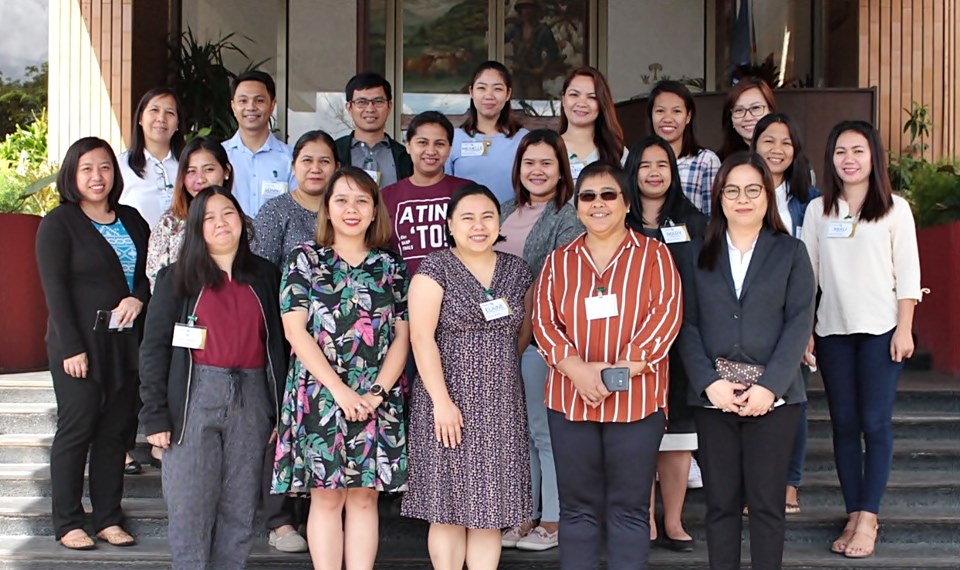The IKM Mentorship Program is one of SEARCA's capacity building projects funded by the Department of Agriculture-Bureau of Agricultural Research (DA-BAR). It aims to facilitate improved agricultural and fisheries research reporting and knowledge management. Using a blended learning approach, the program combines online and face-to-face learning tools and methods.
"We hope this capacity building project will further enhance how DA and its attached agencies manage, utilize, and share the vast knowledge from its many research projects," said Dr. Fernando C. Sanchez Jr., Chair of the SEARCA Governing Board, in his opening remarks delivered by Ms. Nancy M. Landicho, Program Specialist and Officer-in-Charge of SEARCA Project Development and Technical Services (PDTS).
Dr. Sanchez furthered that with their newly acquired skills and knowledge, the learners are expected to be at the forefront of efforts to promote a learning culture and implement an effective KM strategy in their institutions, responsive to the capacity building and information needs of agricultural professionals and clienteles in the Philippines.
The 16 Batch 2 learners come from the different regional offices of the Bureau of Fisheries and Aquatic Resources (BFAR) and other DA-attached agencies.
Meanwhile, Ms. Julia A. Lapitan, Head of DA-BAR's Applied Communication Division, delivered the opening remarks on behalf of Dr. Nicomedes P. Eleazar, BAR Director. In his speech, Dr. Eleazar highlighted the importance of IKM. "If our stakeholders—especially our beneficiaries, our farmers and fishers and their communities—knew what we know, we would all be a hundred times more productive. Imagine what IKM can do to our sector," he said.
Dr. Eleazar also reflected on his involvement with the IKM program. "IKM has allowed me too, to see what we need to learn and unlearn, so we can always efficiently carry out our responsibilities as information officers, to serve our clients better," he said.
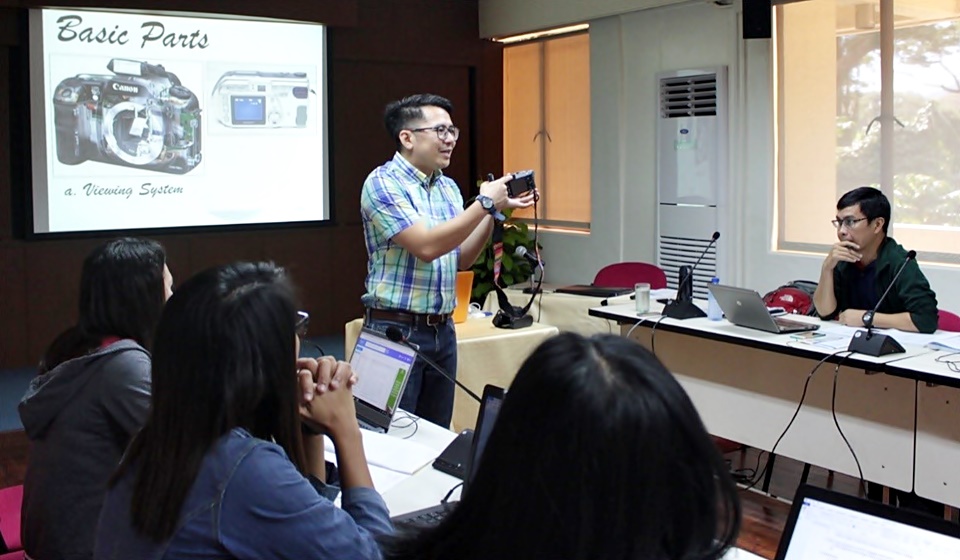 Asst. Prof. Edmund Centeno (standing), mentor for Photography and Audio-Visual Writing and Production, shows the basic parts of a camera.
Asst. Prof. Edmund Centeno (standing), mentor for Photography and Audio-Visual Writing and Production, shows the basic parts of a camera.
Module Synthesis and Consultations
The three-day session started off with the synthesis of Module 1: Science Communication in the context of inclusive growth and sustainable development in fisheries and agriculture research and Module 2: Writing for dissemination of fisheries and agriculture technology, and research result.
Following the module synthesis was the qualitative assessment and post-test of the learners to evaluate their knowledge gain and solicit their feedback on the first two modules.
Ms. Christine N. Gresola, learner-participant from BFAR Region 8, shared the most relevant lesson for her. "Pointers on writing an effective feature and news story were relevant since my field of work revolves around writing short stories about the programs and projects being implemented by our bureau," she said.
The session also included a lecture on understanding how the camera works, followed by an exercise on photography and caption writing. The learners also joined one-on-one consultations to finalize their article and video plans with their respective mentors, who come from the UPLB College of Development Communication. They are Assistant Professor Elaine DC. Llarena, Assistant Professor Pamela Joyce M. Eleazar, Assistant Professor Edmund G. Centeno, and Ms. Rikki Lee B. Mendiola.
Study tour to KM institutions
Also part of the 2nd F2F was a study tour to development organizations with successful KM programs. Dr. Maria Monina Cecilia A. Villena, SEARCA Program Head for KM, shared SEARCA's experience in developing a KM system and how KM plays a key role in inclusive and sustainable agricultural and rural development (ISARD).
"SEARCA's KM Program promotes adaptive and social learning, knowledge sharing and use, and knowledge creation, linked to policy and decision making toward ISARD, against an overriding backdrop of knowledge capture, harvesting, storage, and retrieval," said Dr. Villena.
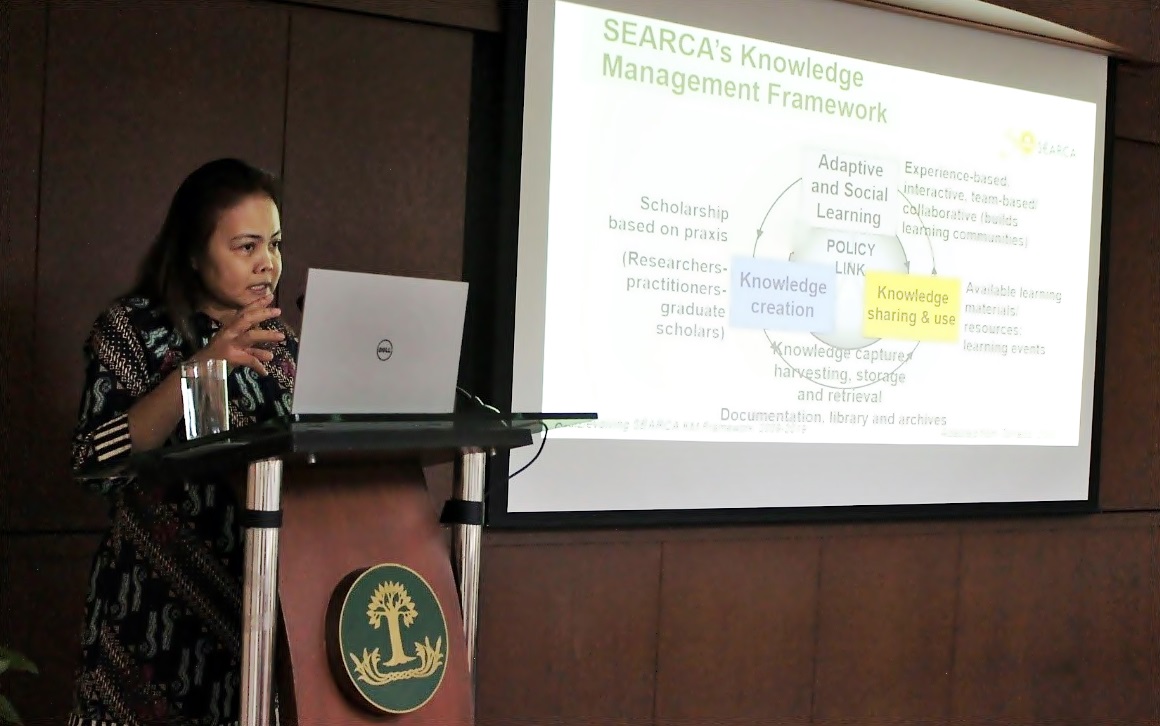 Dr. Maria Monina Cecilia Villena, SEARCA Program Head for KM, presents the center’s KM framework to the learners.
Dr. Maria Monina Cecilia Villena, SEARCA Program Head for KM, presents the center’s KM framework to the learners.
The learners also visited the National Fisheries Research and Development Institute (NFRDI). Mr. Ronnie Romero of the DA-BAR Policy, Planning, and Information Division presented their KM vision to "act as an enabler to effectively and efficiently achieve the NFRDI's strategic objectives, by making the right knowledge available to the right fishery stakeholder at the right time, therefore eliminating duplication of efforts, further maximizing government's budget."
Mr. Romero also discussed NRDI's KM process from discovery, storage, utilization/application, to sharing. He also emphasized their fisheries R&D innovation continuum as a cycle of knowledge generation, knowledge application, and knowledge transfer.
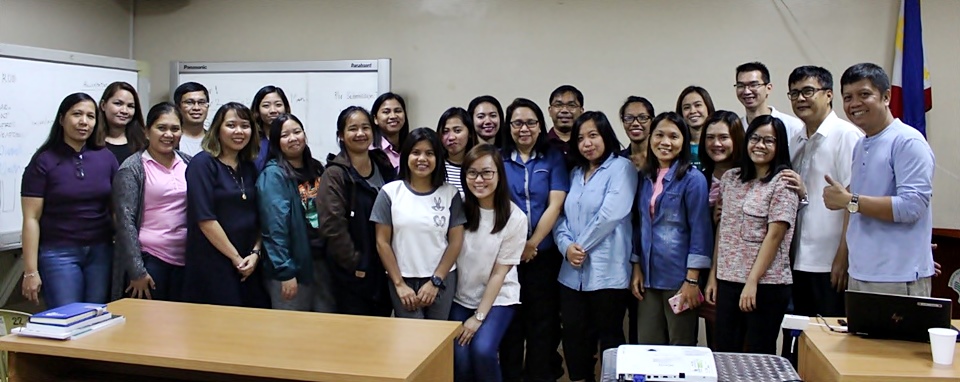 The IKM Program team and learners with the staff of NFRDI during the study tour to KM institutions.
The IKM Program team and learners with the staff of NFRDI during the study tour to KM institutions.
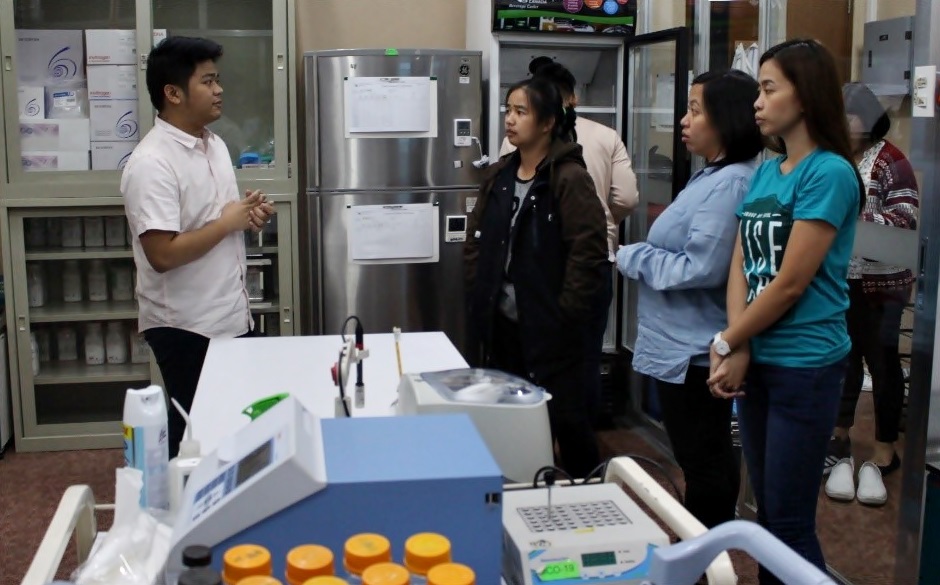 IKM learner-participants tour the laboratories at the NFRDI Office.
IKM learner-participants tour the laboratories at the NFRDI Office.
The study tour concluded at the Asian Development Bank (ADB) where various speakers shared their KM journey and existing KM practices. They presented various knowledge learning and sharing platforms as well as their challenges in institutionalizing KM.
Mr. Jay Presaldo, ADB Knowledge Advisory and Services Analyst, discussed ADB's knowledge systems and tools. He equated knowledge to actionable information and emphasized that "there is a need to better capture and share the knowledge generated throughout the project cycle for the benefit of future projects, which can potentially replicate or adapt that knowledge to local contexts."
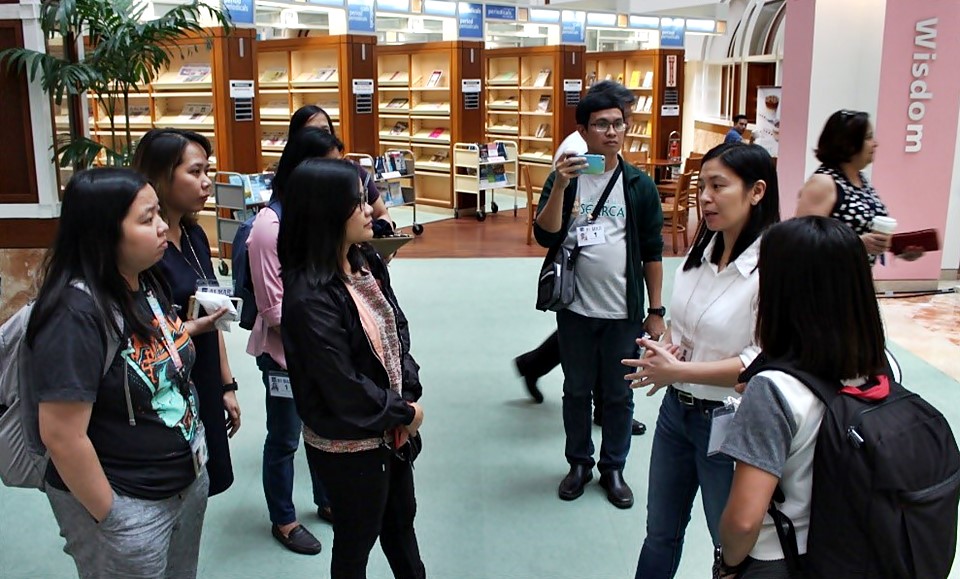 The learner-participants get a glimpse of ADB’s modern library during their study tour.
The learner-participants get a glimpse of ADB’s modern library during their study tour.
Meanwhile, Ms. Leah Arboleda, ADB Natural Resources and Agriculture Officer, presented KM initiatives related to agriculture. Sharing relevant resources in ADB-managed internal and external websites is one of their KM efforts along with the development of databases for agriculture projects and partnerships. She also highlighted knowledge events, such as forums, as an opportunity to exchange and disseminate knowledge, showcase agricultural technologies, and build networks.
"The study tour helped us see KM in action. The initiatives I learned from SEARCA, NFRDI, and ADB are some of the things that we could also apply in our respective agencies," said Ms. Mary Grace M. Nidoy, learner-participant from DA-Philippine Rice Research Institute (PhilRice).
The next F2F of the IKM Mentorship Program will be held in April 2019 to tackle videography and online media for communicating agri-fishery research results. (Sonny Pasiona)
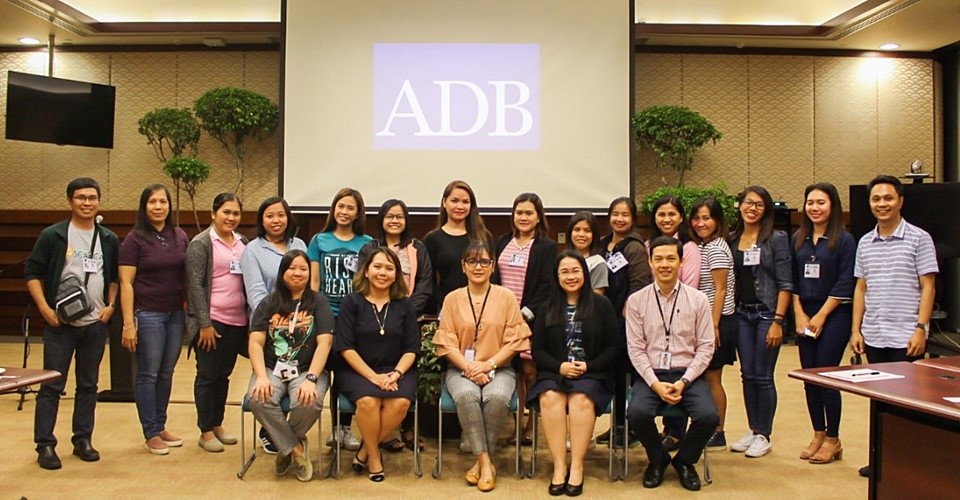 The Project Team and learner-participants of the IKM Mentorship Program with the resource speakers from the Asian Development Bank during the study tour.
The Project Team and learner-participants of the IKM Mentorship Program with the resource speakers from the Asian Development Bank during the study tour.
